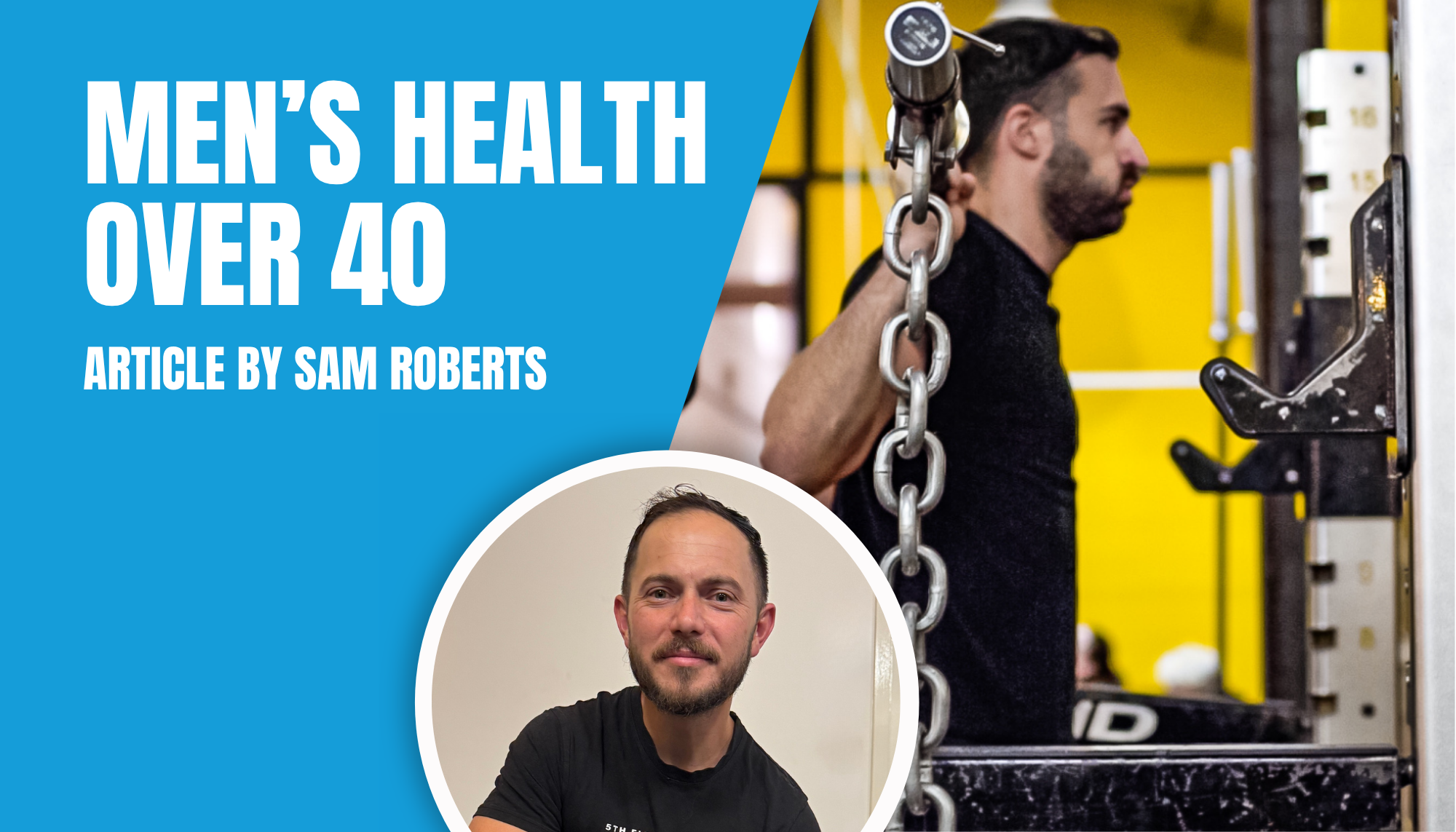Real Strategies to Support Hormones, Strength & Energy
Written by Sam Roberts
If you're noticing slower recovery, a dip in energy, or stubborn belly fat, it's not in your head.
After 40, your hormones start to shift, and your old routine (more training, more protein, more pushing) might actually be making things worse. Testosterone naturally declines with age, but that doesn’t mean you’re stuck feeling flat, foggy, or inflamed.
With the right strategy – smart training, hormone-aware nutrition, deep recovery, and targeted testosterone support supplements – you can build strength, balance hormones, and stay in the game long term.
1. Strength Training That Works With Your Hormones
Strength training remains one of the most powerful ways to support testosterone levels and hormone balance for men: Especially compound lifts like squats, deadlifts, and presses.
But here’s the catch: overdoing it (especially when stress is already high) can spike cortisol, suppressing your testosterone response. The goal isn’t just to train harder, it’s to train smarter.
-
3–4 sessions per week
-
Prioritise progressive overload
-
Recover like it’s part of the plan (because it is)
2. Eat to Support Hormone Health
You can’t out-train a poor hormonal environment. Nutrition is your foundation.
-
Zinc & magnesium are essential for testosterone production
-
Healthy fats like olive oil, avocado, and wild-caught fish support hormone synthesis
-
Protein + carbs together help regulate cortisol and rebuild tissue
Undereating or going low-fat long-term is one of the fastest ways to drive low testosterone symptoms, especially when paired with high stress.
Balance your meals with protein, carbs, and fats, and avoid under-eating, to support your hormone production.
3. Manage Stress (Cortisol Is a Hormone Too)
Stress isn’t just mental: It's metabolic. Chronically elevated cortisol pulls resources away from testosterone production. That’s why stress management isn’t optional in men’s health after 40, it’s essential.
Tools that help:
-
Morning sunlight and movement
5-10 mins of breathwork, meditation, or journaling -
Consistent bedtime and downtime habits
Don’t wait until burnout hits — manage your stress load before it spills over.
4. Prioritise Sleep (Testosterone Is Made While You Sleep)
Most of your testosterone is produced during deep sleep. If your sleep is broken, your hormones will be too.
-
Aim for 7–9 hours
-
Cut screens 30 mins before bed
-
Consider magnesium or breathwork to wind down
If you’re waking up unrefreshed or wired at night, it’s time to take it seriously.
FAQs
What are signs of low testosterone in men over 40?
Common symptoms include reduced energy, brain fog, low motivation, decreased libido, loss of muscle mass, and poor recovery from training. Mood swings and stubborn abdominal fat can also be clues.
Can supplements boost testosterone naturally?
Yes, especially when paired with sleep, training, and stress regulation. Supplements like zinc, magnesium, adaptogens, and liver-supporting nutrients can create the right environment for your body to restore balance.
Reminder: Supplements won’t override poor sleep or chronic stress, but they can help you get more out of the effort you put into your training, recovery, and lifestyle
You don’t need to train harder or push more. You need a smarter strategy built for your age, lifestyle, and physiology. Get the foundations right, and your strength, focus, and energy start coming back fast.
For a more tailored approach to men’s health and hormone coaching, follow me on Instagram @thesammyroberts.

